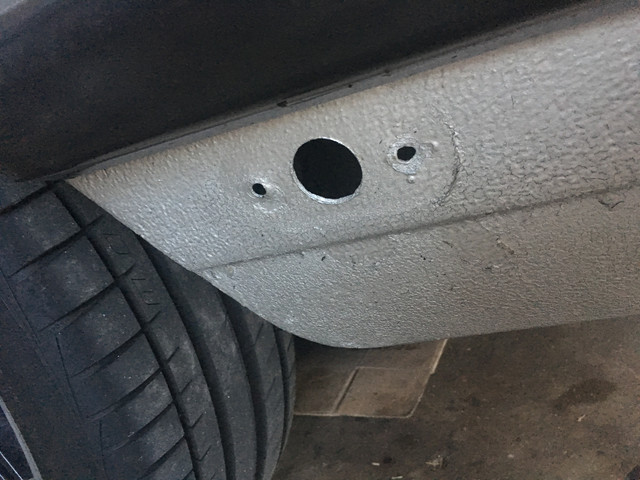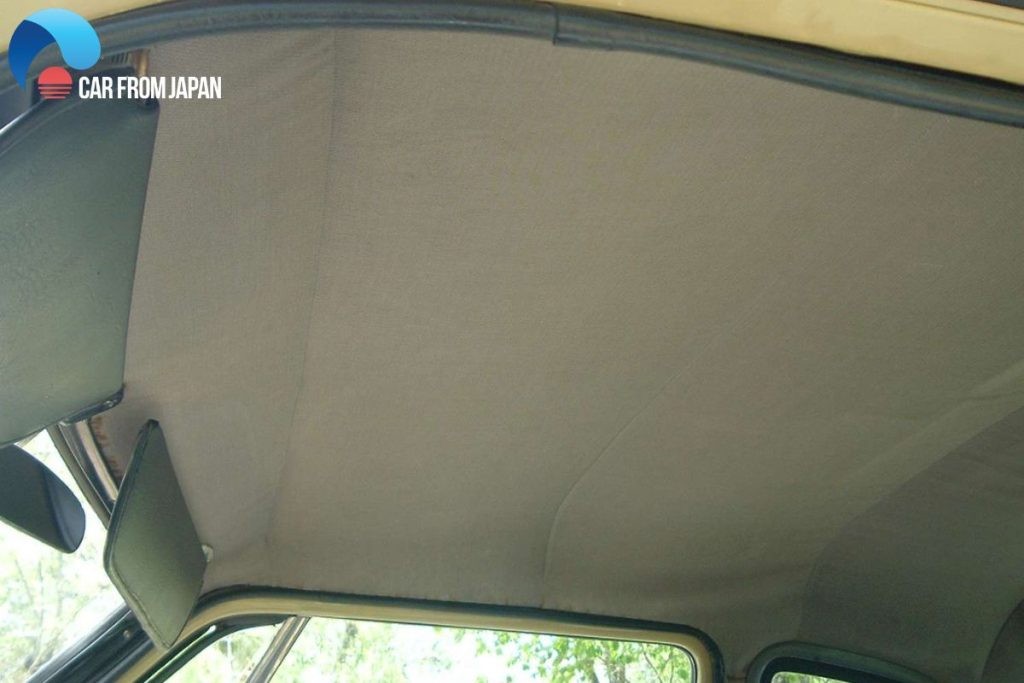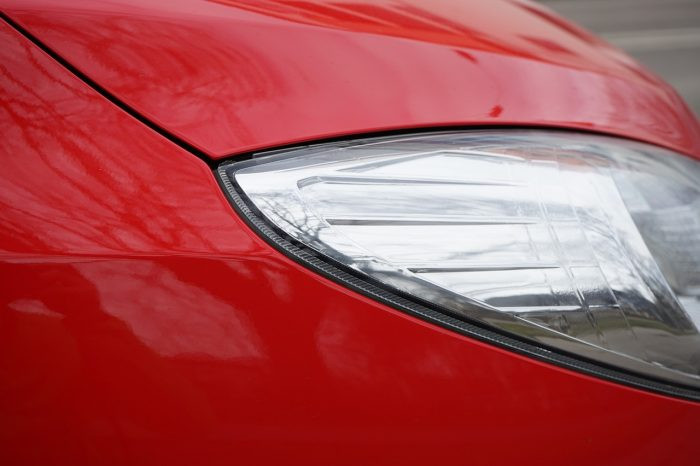**How Much Does a Gas Leak Cost to Fix a Car?**
Dealing with a fuel leak in your car can be stressful, and understanding the repair costs is essential. CARDIAGTECH.BIZ provides you with the information you need to estimate expenses and prevent further damage, offering top-quality tools and advice. Knowing the potential costs and acting quickly can save you money and ensure your safety and that of your vehicle.
Table of Contents
- Identifying the Gas Leak
- Safety Precautions to Follow
- Evacuation Safety Tips
- Common Causes of Gas Leaks
- Loose Drain Plugs
- Damaged Gas Tank
- Temporary Fixes for Minor Leaks
- When to Call a Professional
- Preventing Future Gas Leaks
- Cost Implications of Repairs
- FAQ
- Conclusion
1. Identifying the Gas Leak
How can you tell if your car has a fuel leak? Spotting a fuel leak early can prevent serious issues and high repair costs. Look for these key signs to identify a potential problem:
- Smell of Gas: A strong gasoline odor, especially when the car is parked, is a primary indicator.
- Visible Leaks: Check for puddles of fuel under your car, particularly near the fuel tank or engine.
- Fuel Efficiency Drop: Noticeable decrease in miles per gallon (MPG) can signal a leak.
- Engine Performance Issues: Difficulty starting or rough idling may be related to fuel delivery problems.
- Check Engine Light: This light can indicate various issues, including those related to the fuel system.
According to a study by the U.S. Environmental Protection Agency (EPA), faulty fuel systems contribute significantly to vehicle emissions. Identifying and fixing leaks promptly helps reduce pollution and improves vehicle performance.
2. Safety Precautions to Follow
What safety steps should you take if you suspect a fuel leak? When you suspect a fuel leak, safety is paramount. Here’s a step-by-step guide to protect yourself and others:
- Move the Vehicle: If possible, move the car to a well-ventilated area away from buildings and potential ignition sources.
- Avoid Sparks: Do not smoke, use open flames, or create sparks near the vehicle.
- Turn Off the Engine: Ensure the engine is off and do not attempt to restart it.
- Disconnect the Battery: If you’re comfortable doing so, disconnect the negative terminal of the battery to minimize the risk of sparks.
- Call for Help: Contact a professional mechanic or emergency services immediately.
The National Fire Protection Association (NFPA) highlights the importance of preventing ignition sources near fuel leaks. Following these precautions can significantly reduce the risk of fire or explosion.
3. Evacuation Safety Tips
What are the key steps for evacuating safely during a gas leak? In the event of a substantial fuel leak, prompt evacuation is crucial. Here’s how to ensure your safety and the safety of those around you:
- Clear the Area: Evacuate everyone from the immediate vicinity of the vehicle.
- Maintain Distance: Keep a safe distance of at least 50 feet from the vehicle to avoid exposure to fumes.
- Alert Others: Inform people nearby about the leak and the need to evacuate.
- Call Emergency Services: Contact emergency services immediately, providing them with your location and details about the leak.
- Wait for Professionals: Do not return to the vehicle until professionals have assessed the situation and given the all-clear.
According to the National Safety Council, quick and orderly evacuation can significantly reduce injuries and fatalities in hazardous situations. Always prioritize safety and follow the guidance of emergency responders.
4. Common Causes of Gas Leaks
What are the most frequent causes of fuel leaks in cars? Several factors can lead to fuel leaks, each requiring specific attention and repair. Here are some of the most common causes:
- Fuel Line Damage: Cracks, corrosion, or damage to fuel lines are frequent culprits.
- Loose Fuel Caps: A missing or improperly tightened fuel cap can cause fuel to evaporate and leak.
- Fuel Tank Issues: Rust, punctures, or seam failures in the fuel tank can result in leaks.
- Fuel Injector Problems: Leaking fuel injectors can cause fuel to drip or spray onto the engine.
- Drain Plug Problems: Loose or damaged drain plugs on the fuel tank can lead to leaks.
A study by the National Institute for Automotive Service Excellence (ASE) indicates that regular inspection and maintenance of these components can prevent many fuel leaks.
5. Loose Drain Plugs
Why do loose drain plugs cause gas leaks, and how can you address them? Drain plugs, located at the bottom of the fuel tank, are crucial for maintaining the tank’s integrity. When loose, they can lead to fuel leaks. Here’s what you need to know:
- Regular Inspection: Check drain plugs regularly for tightness and signs of wear.
- Tightening: If loose, tighten the plug securely, but avoid over-tightening, which can damage the threads.
- Seal Replacement: If the plug is damaged or the seal is worn, replace it with a new one.
- Professional Help: If you’re unsure how to properly tighten or replace the drain plug, consult a professional mechanic.
According to the Car Care Council, ensuring that drain plugs are properly maintained helps prevent fuel leaks and protects the environment.
6. Damaged Gas Tank
What types of damage can affect a car’s fuel tank, causing leaks? Fuel tanks are susceptible to various types of damage, leading to fuel leaks. Here are the primary causes:
- Rust: Corrosion, especially in regions with road salt, can cause rust and holes in the tank.
- Impacts: Physical impacts from accidents or road debris can puncture the tank.
- Seam Failures: Over time, the seams of the fuel tank can weaken and leak.
- Fuel Cap Issues: A faulty or missing fuel cap can lead to fuel evaporation and leaks.
According to a report by the Insurance Institute for Highway Safety (IIHS), fuel tank integrity is crucial for vehicle safety. Addressing these issues promptly helps prevent hazardous situations.
7. Temporary Fixes for Minor Leaks
What are some temporary solutions for minor fuel leaks? While professional repair is always recommended, temporary fixes can help contain minor fuel leaks until you can get the vehicle to a mechanic. Here are a few options:
- Epoxy Putty: Apply epoxy putty to small holes or cracks in the fuel tank or lines.
- Fuel Tank Sealant: Use a fuel tank sealant to seal small leaks.
- Hose Clamps: Tighten loose fuel lines with hose clamps.
- Rubber Patch: Apply a rubber patch with adhesive to cover small holes.
Note: These fixes are temporary and should only be used to get the vehicle to a repair shop safely.
According to Popular Mechanics, these temporary fixes can provide a short-term solution, but professional repair is essential for long-term safety and reliability.
8. When to Call a Professional
When should you seek professional help for a fuel leak? While some minor issues can be temporarily addressed, certain situations require immediate professional attention. Call a mechanic if:
- The Leak is Significant: Any large or rapidly occurring leak requires professional assessment.
- You Smell Strong Fuel Odors: Persistent and strong fuel odors indicate a serious problem.
- The Engine is Affected: If the engine is running poorly or stalling, it could be related to the fuel leak.
- You’re Unsure of the Cause: If you can’t identify the source of the leak, a professional diagnosis is necessary.
- Temporary Fixes Fail: If temporary fixes don’t hold or the leak returns quickly, seek professional help.
The AAA emphasizes the importance of professional assessment for fuel leaks to ensure safety and prevent further damage.
9. Preventing Future Gas Leaks
What steps can you take to prevent gas leaks in the future? Preventing fuel leaks involves regular maintenance and careful attention to your vehicle. Here are some key steps:
- Regular Inspections: Inspect fuel lines, fuel tanks, and fuel caps regularly for signs of wear or damage.
- Proper Maintenance: Follow the manufacturer’s recommended maintenance schedule for fuel system components.
- Avoid Overfilling: Do not overfill the fuel tank, as this can damage the fuel system.
- Use Quality Parts: When replacing fuel system components, use high-quality parts.
- Address Issues Promptly: Address any warning signs, such as fuel odors or decreased fuel efficiency, immediately.
According to J.D. Power, regular maintenance is crucial for preventing vehicle problems, including fuel leaks.
10. Cost Implications of Repairs
What is the typical cost range for fixing a gas leak on a car? The cost of repairing a fuel leak can vary widely depending on the cause and severity of the problem. Here’s a general breakdown:
| Repair Type | Estimated Cost |
|---|---|
| Minor Leak Repair | $150 – $300 |
| Fuel Line Replacement | $200 – $600 |
| Fuel Tank Repair | $300 – $800 |
| Fuel Tank Replacement | $800 – $1,500+ |
| Fuel Injector Replacement | $200 – $500 |
These costs include parts and labor. According to RepairPal, addressing fuel leaks promptly can prevent more extensive and costly damage.
11. FAQ
Here are some frequently asked questions about fuel leaks in cars:
- Q1: How can I tell if my car has a fuel leak?
- Look for a strong gasoline odor, visible leaks, decreased fuel efficiency, and engine performance issues.
- Q2: Is it safe to drive with a fuel leak?
- No, it is not safe. Fuel leaks can lead to fires and explosions.
- Q3: Can a loose gas cap cause a fuel leak?
- Yes, a loose or missing gas cap can cause fuel to evaporate and leak.
- Q4: What should I do if I smell gas inside my car?
- Pull over to a safe location, turn off the engine, and evacuate the vehicle.
- Q5: Can I fix a fuel leak myself?
- Minor leaks can be temporarily fixed, but professional repair is recommended for safety.
- Q6: How often should I inspect my fuel system?
- Inspect your fuel system at least twice a year or during regular maintenance checks.
- Q7: What are the signs of a damaged fuel tank?
- Rust, punctures, seam failures, and fuel stains are signs of a damaged fuel tank.
- Q8: How much does it cost to replace a fuel tank?
- Fuel tank replacement can cost between $800 and $1,500 or more.
- Q9: Can a fuel leak affect my car’s performance?
- Yes, fuel leaks can cause decreased fuel efficiency, rough idling, and difficulty starting the engine.
- Q10: Why is it important to address fuel leaks promptly?
- Addressing fuel leaks promptly prevents fires, explosions, environmental damage, and costly repairs.
12. Conclusion
Addressing a fuel leak in your car promptly is crucial for safety, environmental protection, and cost savings. By understanding the signs, taking appropriate safety measures, and seeking professional help when needed, you can ensure your vehicle remains safe and efficient. Regular maintenance and vigilance are key to preventing future fuel leaks.
For all your automotive repair needs, trust CARDIAGTECH.BIZ to provide top-quality tools and expert advice. Contact us today at 276 Reock St, City of Orange, NJ 07050, United States, or reach us via Whatsapp at +1 (641) 206-8880. Visit our website at CARDIAGTECH.BIZ for more information and to explore our range of products.
Don’t wait until it’s too late! Ensure your vehicle is in top condition and prevent costly repairs by contacting CARDIAGTECH.BIZ now for all your automotive diagnostic and repair needs. Click here to connect with us on WhatsApp (+1 (641) 206-8880) and get expert advice and solutions right away!






